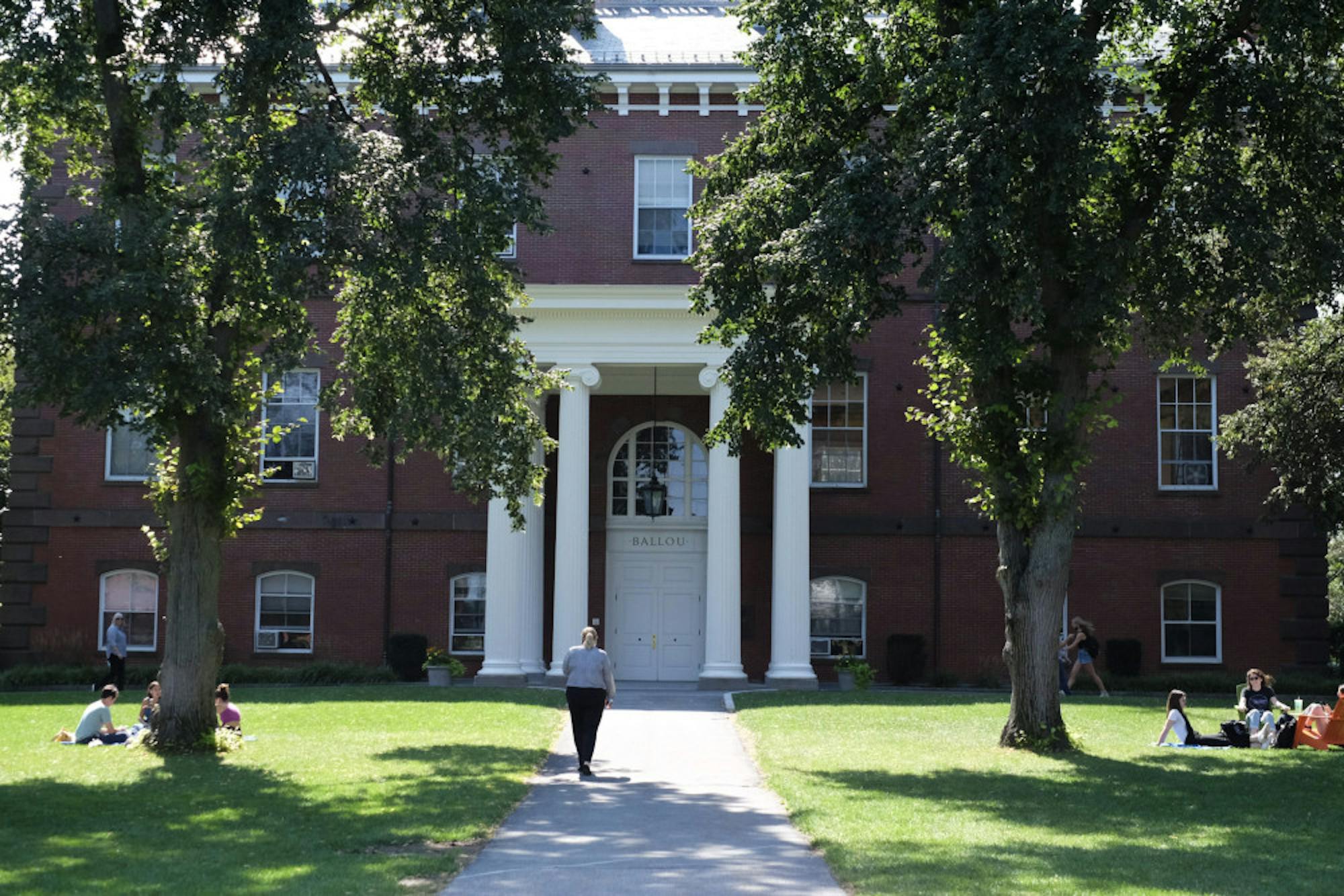University leaders condemned all forms of antisemitism and Islamophobia while reiterating community values and protester guidelines in a community statement on Nov. 8. The email cited community members’ concerns about campus climate following the Israel-Hamas war.
“Let us be clear that we will not tolerate threatening, violent, or destructive speech or conduct,” the email stated. “Any instances of antisemitism, Islamophobia, or any other forms of discrimination will not be tolerated.”
The letter was signed by Kumar and a dozen other senior members of the university’s administration.
According to the email, the Tufts Office of Equal Opportunity received approximately 60 cases in the last month that were “roughly split between accusations of antisemitism and Islamophobia.” Such cases may result in loss of privileges, probation, suspension, expulsion and revocation for both individual students and student organizations.
“We want to be extremely clear that we will be enforcing these policies on free speech, academic freedom, and protests,” they wrote. “We have had instances of students, faculty, and staff going outside the boundaries of acceptable behavior. Members of university and school administration have reached out to students, staff, and faculty to remind them of what constitutes inappropriate behavior, the importance of using speech responsibly, and the responsible use of academic freedom and free speech rights.”
The email came three days after students protested at a TCU event with Kumar. On Nov. 9, Students for Justice in Palestine organized a 10-hour sit-in protest at the Mayer Campus Center demanding an immediate ceasefire, transparency of university investments in companies with Israeli operations, that Kumar make a statement “condemning the genocide in Palestine” and that Tufts end “all programs and funded trips to the entirety of occupied Palestine.”
“Protests are a time-honored tradition on university campuses, but we make a key distinction between those who are raising their voices to have their opinions heard and those who are raising voices to ensure that other opinions are not heard,” the email said. “Protests that involve the unauthorized entry into buildings, interference with classes or official events, or blocking means of entry or exit from rooms and buildings are a violation of our policies.”
In another community-wide email sent shortly after the first on Nov. 8, James Glaser, dean of the School of Arts and Sciences, Kyongbum Lee, dean of the School of Engineeringand SMFA Dean Scheri Fultineer shared that the university received reports of “unauthorized posters and writing on whiteboards in classrooms” related to the Israel-Hamas war.
While they wrote that they “do not advocate canceling class if an incident like this occurs,” they also said that “unauthorized postings and messaging within classrooms is a violation of Tufts policies, and such activities are subject to disciplinary measures.”
According to the leadership’s email, no credible threats against physical safety on the university’s campus have been made.
“Our first responsibility is the safety and well-being of our entire community,” they wrote. “This is something we take very seriously because it is essential to maintaining a civil and productive environment for learning.”
University leadership laid out general plans to address the growth of antisemitism on campus, informed by a study conducted at Tufts in 2021.
“As we meet the immediate impact of the crisis in the Middle East on our campuses, we also want to be mindful that Tufts must play a long-term leadership role in addressing antisemitism and Islamophobia,” they wrote.
Their plan includes the introduction of more anti-bias content in the school’s curricula, more resources to promote healthier discussion of pressing issues, sharing of policies and best practices with other universities and a potential modification to how the university recognizes and funds student organizations, “particularly as related to hate speech.”
“We are committed to applying the findings of that effort and, in combination with what we have learned in recent days, developing a concrete and actionable plan for addressing antisemitism at Tufts,” they wrote, adding that the “recommendations can also be used to address the rising cases of Islamophobia at Tufts as well and we will identify additional ways to confront it and hate in all its forms at the university.”






